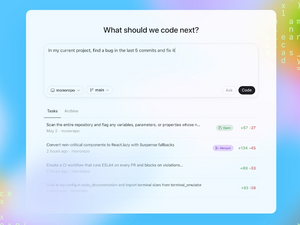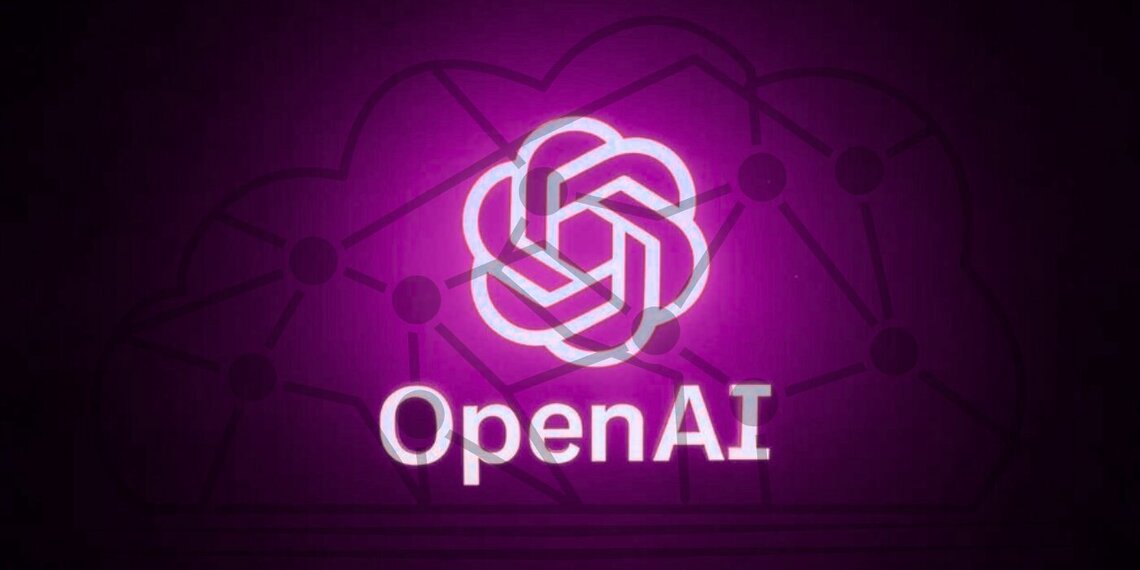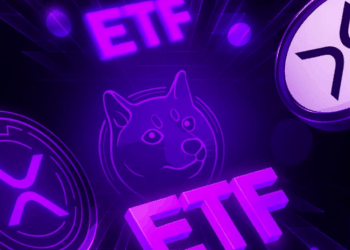OpenAI has introduced a research preview of Codex, its most advanced AI coding agent to date.
Codex is powered by codex-1, an optimized version of OpenAI’s o3 AI reasoning model, designed specifically for software engineering. According to OpenAI, codex-1 generates cleaner code, follows instructions with greater accuracy, and continuously tests its outputs until successful results are achieved.
The Codex agent operates within a cloud-based, sandboxed virtual environment. By integrating with GitHub, it can automatically load users’ code repositories, streamlining development tasks. OpenAI states that Codex can take between one and 30 minutes to implement new features, fix bugs, answer code-related queries, and run tests.
Furthermore, OpenAI highlights that Codex can handle multiple programming tasks simultaneously while allowing users to continue working on their computer and browser without interruptions.

Codex is officially launching today for ChatGPT Pro, Enterprise, and Team subscribers. Initially, users will enjoy extensive access, but OpenAI plans to introduce rate limits in the coming weeks. After that, users will have the option to purchase additional credits for extended usage, according to an OpenAI spokesperson speaking to TechCrunch.
The company also intends to make Codex available to ChatGPT Plus and Edu users soon.
AI-powered coding tools, often referred to as vibe coders, have gained significant traction recently. Google and Microsoft’s CEOs report that AI now generates around 30% of their companies’ code. In February, Anthropic introduced its agentic coding assistant, Claude Code, while Google enhanced its own AI coding tool, Gemini Code Assist, with more advanced capabilities in April.
The rapid rise of AI-powered coding platforms has made them some of the fastest-growing businesses in the tech industry. Cursor, one of the most popular AI coding tools, reached an annualized revenue of approximately $300 million in April and is reportedly raising new funds at a $9 billion valuation.
Now, OpenAI is entering the space. The company behind ChatGPT has reportedly completed a $3 billion acquisition of Windsurf, the developer of another leading AI coding platform. The launch of Codex further reinforces OpenAI’s ambition to build its own suite of AI coding tools.
Users with access to Codex can locate the tool in ChatGPT’s sidebar and assign coding tasks by entering a prompt and clicking the “Code” button. Additionally, they can inquire about their codebase using the “Ask” button. Below the prompt bar, users can track Codex’s progress on assigned tasks.
Ahead of Codex’s launch, OpenAI’s Agents Research Lead, Josh Tobin, told TechCrunch that the company envisions its AI coding agents as “virtual teammates,” capable of autonomously completing tasks that typically require human engineers hours or even days to finish. OpenAI states that Codex is already being utilized internally to automate repetitive tasks, develop new features, and generate documentation.
OpenAI Product Lead Alexander Embiricos assures that the safety measures implemented for the company’s o3 model also apply to Codex. In a blog post, OpenAI notes that Codex will actively reject requests to create “malicious software.” Furthermore, Codex operates within an isolated environment, restricting access to external APIs and the broader internet, minimizing potential risks but possibly limiting functionality.
AI coding agents, like all generative AI systems, are not flawless. A recent Microsoft study found that top-tier AI coding models, such as Claude 3.7 Sonnet and o3-mini, struggle with reliable debugging. Nonetheless, investor enthusiasm remains strong.
OpenAI is also updating Codex CLI, its recently launched open-source coding assistant, by integrating a version of its o4-mini model optimized for software engineering. This model is now the default in Codex CLI and is available via OpenAI’s API at $1.50 per 1M input tokens and $6 per 1M output tokens.
Codex’s introduction signals OpenAI’s continued expansion beyond ChatGPT’s chatbot capabilities. Over the past year, OpenAI has added premium access to its AI video platform, Sora, its research tool, Deep Research, and its web browsing assistant, Operator.
These new features could attract more users to subscribe to ChatGPT, and in Codex’s case, encourage existing subscribers to invest in additional rate limits.










